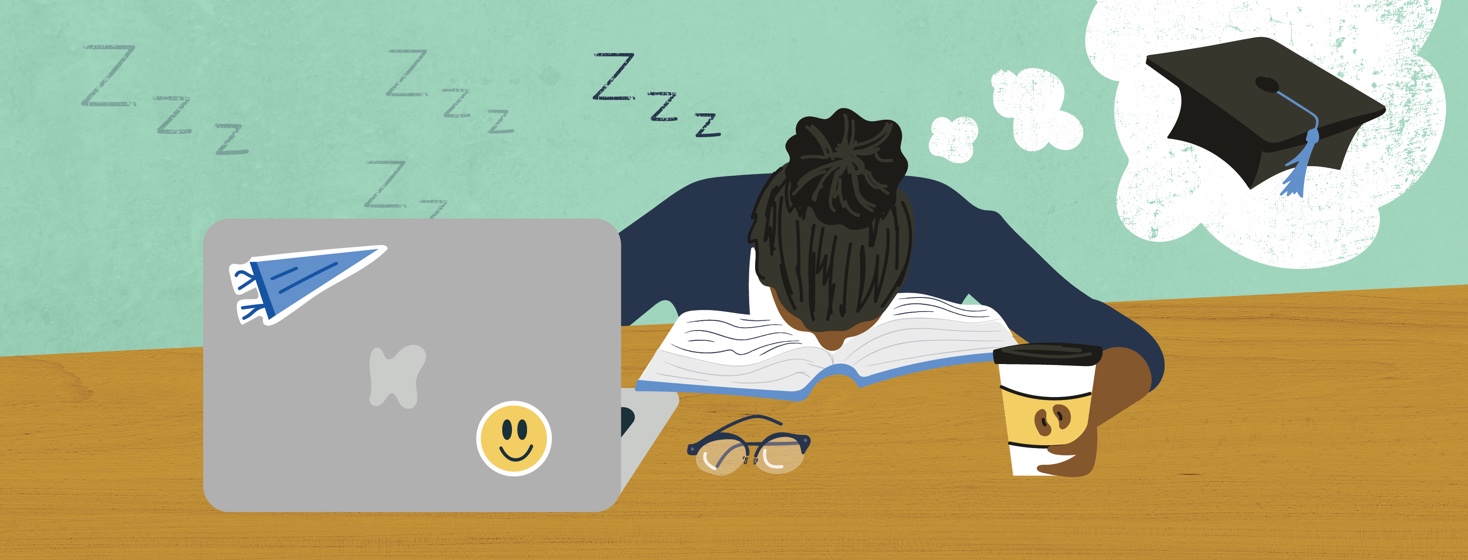5 Tips to Be Successful in College With Narcolepsy
Dealing with narcolepsy and the workload of college can be a stressful experience. You could have 4 exams, 7 assignments, a pop quiz, and a 15-page paper all due within one week. There wasn't one college class that I didn't fall asleep in, but I continued to remain successful because of these 5 steps.
1. Tell your professor ASAP
One of the most common symptoms of narcolepsy is excessive daytime sleepiness. If you fall asleep during a college class, the professor will more than likely assume you were having too much fun the previous night. Professors are not only the people that give you your grade, but they also can provide you with a letter of recommendation or extra credit.
Professors are more willing to help students out when they feel the student is doing everything they can to succeed in class. Take 5 mins to chat with each professor after your first day of class. Give information about narcolepsy and tell them how you plan to be successful in their class.
Here is an example:
Hi, professor. My name is Alyssa, and I am so excited to be in your class this semester. I just wanted to introduce myself and let you know that I have narcolepsy. This sleeping disorder causes me to have excessive daytime sleepiness. I may fall asleep for a bit in your class or come into class late due to oversleeping.
These things will not happen in every class, but I would like you to know, so I don't appear to not care about my academics. I plan to sit in the back to stand up or easily slip out to the bathroom to try to make myself more alert to pay attention. Do you mind if I record your lectures to review the information that I missed?
Featured Forum
View all responses2. Find a study partner and study group
Taking notes in class can boost your comprehension and retention dramatically. There are 3 ways to fix this problem.
Ask the teacher to provide you with the PowerPoint to print it off before class. When the lecture is over, you can chat with your professor to get the information you missed.
Another solution would be to record lectures. Have a study partner from your class to compare notes. It is a win-win for both parties, mostly when one person misses the entire course.
Lastly, attend office hours to get that one-on-one time to answer any questions have.
3. Learn your sleepiness schedule
I have had narcolepsy for about 7 years, and I have noticed these patterns. I usually become tired about 3-5 hours after I initially wake up. Things such as overeating, working out, being in the sun, and stress also causes me to experience more excessive daytime sleepiness.
Having a face to face conversation and random exercise moves tend to make me feel more alert. Try and pay attention to your tiredness. Doing so will help in deciding when to schedule classes, homework, and study time.
Ask yourself these follow questions to get started.
- Do I become more tired in the morning or evenings?
- What do I eat that makes me want to take a nap?
- I am up ___ hours before I start to feel tired.
- What are activities help to make me feel more alert?
- What are the activities that make me tired?
4. Take advantage of the disability center on campus
A disability center provides students with tools and resources that help them accommodate to be successful in college. In my experience, I was offered things like longer test times and the ability to take my test in a private area. I liked this option because I could stand up and walk around if I became tired on long tests.
They also provided free software on my computer that could read textbooks out loud to me, and I could write a paper by just using my voice. Every disability center is different, so make sure you ask about all the services that they offer. Even if what they provide doesn't help, it is good to meet people who want you to succeed.
5. Don't be too hard on yourself
Narcolepsy is NOT EASY. Narcolepsy is NOT EASY. Narcolepsy is NOT EASY. Waking up some days, I already know it is going to be a hell of a day. The bad news is you have no control over your sleepiness. Hello! You already knew this. Lol. So stop being hard on yourself. The good news is that you can change your mindset on the situation by living in the moment and respecting the journey.
For example, you have a goal to write a book. Try not to expect when it should be finished and instead reward yourself after every time you work on it. "Rome wasn't built in one day," "slow and steady and steady wins the race," and "narcolepsy is NOT EASY, so stop being hard on yourself."
How have you handled school while managing your narcolepsy? Share your story below.

Join the conversation